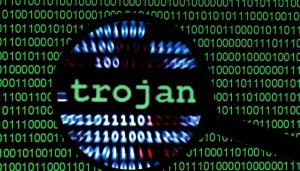What Is SysJoker?
SysJoker is the name of a malicious program known to act like a Trojan horse. It has been developed to infect computer systems and then steal data about various users’ activities and technical computer details. Except espionage, the SysJoker Trojan could be used for other purposes such as ransomware distribution and cryptocurrency mining. Its activation on a computer can enable it to overtake control of the system. Then it can hijack user data and commit dangerous actions on the hosts.
Check out our detailed removal guide and find out how to remove SysJoker from the infected system and prevent it from causing further damage.

SysJoker Summary
| Name | SysJoker |
| Type | Trojan, Cross-Platform backdoor malware available for Mac and Lunux, as well. |
| Short Description | Aims to steal data from your computer and run different malware actions. |
| Symptoms | Your computer may behave strangely and new files may be dropped in several Windows Directories. |
| Distribution Method | Common infection methods including phishing messages and malware-infected files. |
| Detection Tool |
See If Your System Has Been Affected by malware
Download
Malware Removal Tool
|
SysJoker Trojan – How Does It Infect?
The nasty infection SysJoker Trojan could be distributed by a variety of techniques. The two main are:
- Payload Droppers – various types of files including application installers can be set to install malicious Trojan horses. Here we could mention office programs, system utilities, and even computer games. Hackers usually embed the nasty code in the installation setup files.
- Macro-infected documents – they can be of all common formats – presentations, text documents, databases, and spreadsheets. When they are opened, users are typically asked to enable the macros. When this is done, a Trojan downloading process to the host computer is initiated.
SysJoker Trojan – What Does It Do?
The Trojan has been observed to collect specific information about every computer it infects. When the Trojan runs on a given computer system and infects it, it initiates a data-gathering phase during which it searches the user name and IP address. Hardcoded values and other technical details may be obtained as well. From here comes the presumption that its primary goal is espionage.
By spying on its victims, the SysJoker trojan can enable hackers to drop additional malware and help them misuse sensitive credentials. The SysJoker Trojan may install a local client agent which establishes a secure and persistent connection to a hacker-controlled server. This means that the infection can communicate with a command and control (C&C) server. Therefore, the malware can receive additional instructions and download additional components to upgrade its capabilities at any time.
The virus can also load and run PowerShell scripts to ensure that the network connection between the local client and the hacker-controlled server stays persistent. Trojan infections like SysJoker are commonly used to steal files that are found on infected computers too.
We recommend that you uninstall the SysJoker Trojan virus the moment you detect this infection on the system. The sooner the better. Protect against further damage to the infected hosts by following the guide below.
SysJoker Trojan – Virus Removal
In order to fully remove this infection from your computer system, you can try the automatic removal guidelines below. They are particularly created in order to assist you to separate this malware first of all and after that remove, its destructive files. If you lack experience in malware removal, the best method and most reliable one according to safety professionals is to use an innovative anti-malware software program. Such will not just immediately get rid of the SysJoker infection from your computer system, yet will certainly additionally ensure that your computer system remains shielded versus future infections.
Preparation before removing SysJoker.
Before starting the actual removal process, we recommend that you do the following preparation steps.
- Make sure you have these instructions always open and in front of your eyes.
- Do a backup of all of your files, even if they could be damaged. You should back up your data with a cloud backup solution and insure your files against any type of loss, even from the most severe threats.
- Be patient as this could take a while.
- Scan for Malware
- Fix Registries
- Remove Virus Files
Step 1: Scan for SysJoker with SpyHunter Anti-Malware Tool
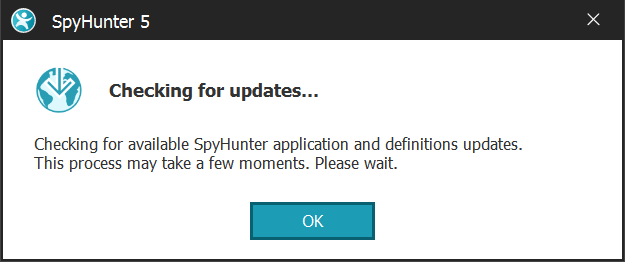
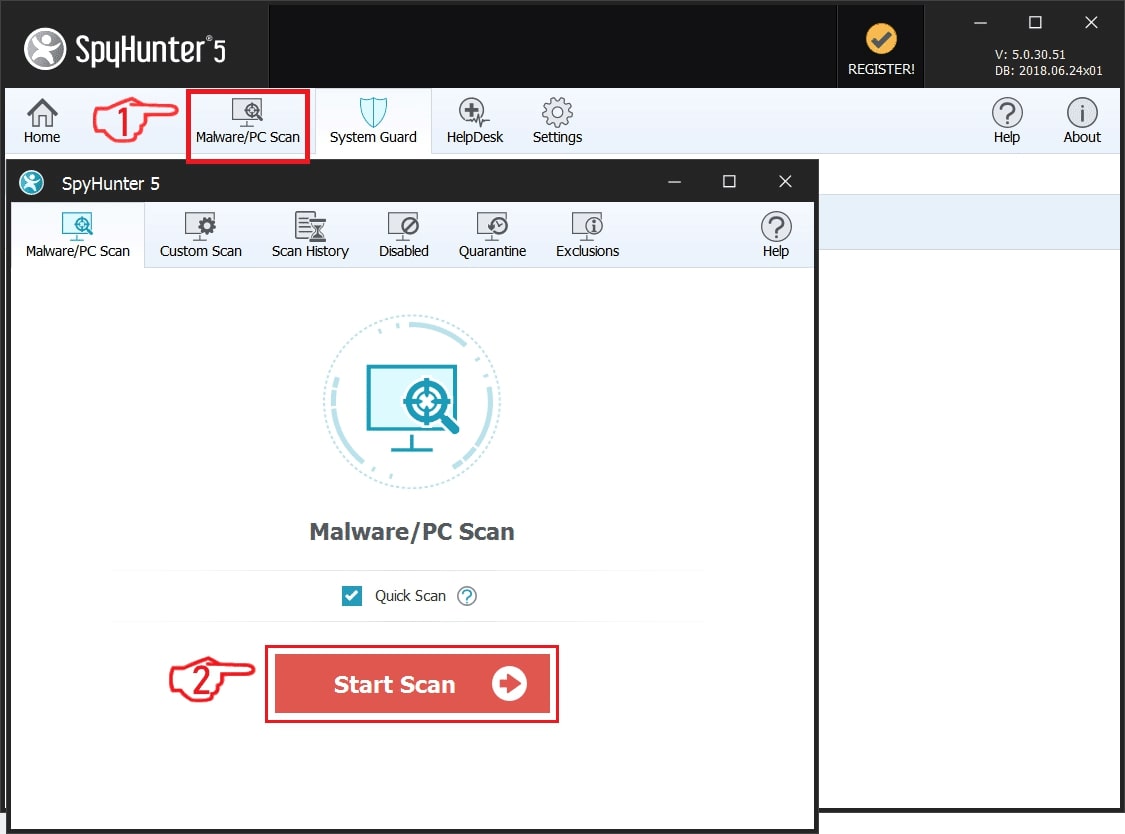
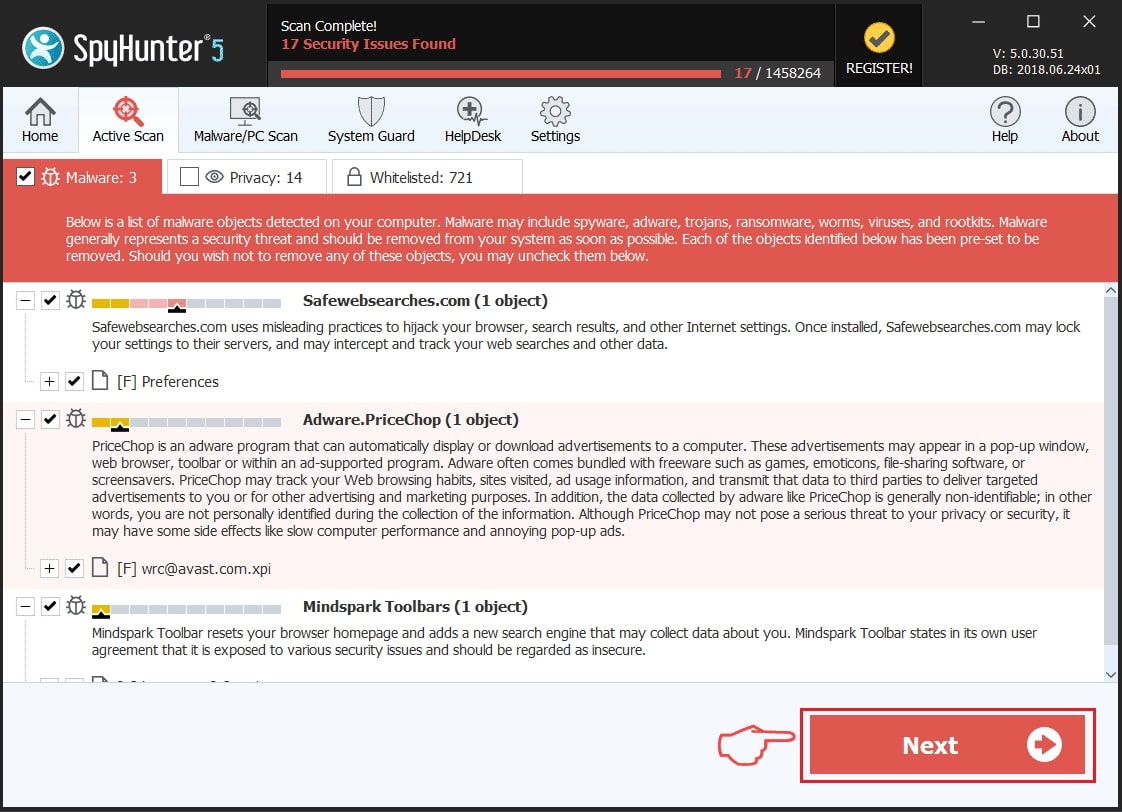
Step 2: Clean any registries, created by SysJoker on your computer.
The usually targeted registries of Windows machines are the following:
- HKEY_LOCAL_MACHINE\Software\Microsoft\Windows\CurrentVersion\Run
- HKEY_CURRENT_USER\Software\Microsoft\Windows\CurrentVersion\Run
- HKEY_LOCAL_MACHINE\Software\Microsoft\Windows\CurrentVersion\RunOnce
- HKEY_CURRENT_USER\Software\Microsoft\Windows\CurrentVersion\RunOnce
You can access them by opening the Windows registry editor and deleting any values, created by SysJoker there. This can happen by following the steps underneath:
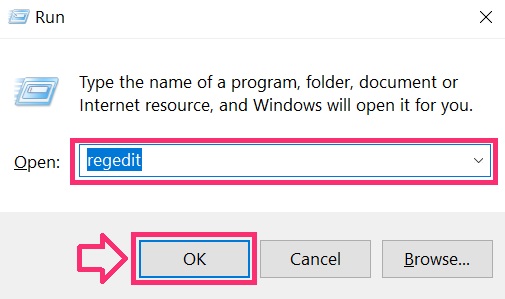

 Tip: To find a virus-created value, you can right-click on it and click "Modify" to see which file it is set to run. If this is the virus file location, remove the value.
Tip: To find a virus-created value, you can right-click on it and click "Modify" to see which file it is set to run. If this is the virus file location, remove the value.Step 3: Find virus files created by SysJoker on your PC.
1.For Windows 8, 8.1 and 10.
For Newer Windows Operating Systems
1: On your keyboard press + R and write explorer.exe in the Run text box and then click on the Ok button.
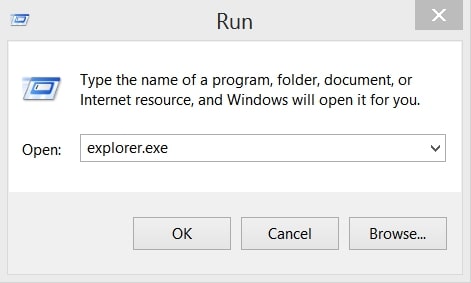
2: Click on your PC from the quick access bar. This is usually an icon with a monitor and its name is either “My Computer”, “My PC” or “This PC” or whatever you have named it.
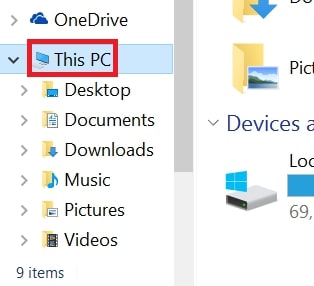
3: Navigate to the search box in the top-right of your PC's screen and type “fileextension:” and after which type the file extension. If you are looking for malicious executables, an example may be "fileextension:exe". After doing that, leave a space and type the file name you believe the malware has created. Here is how it may appear if your file has been found:
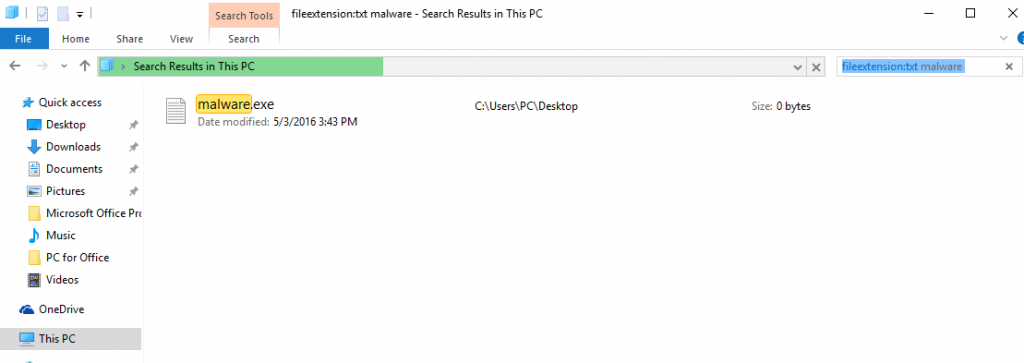
N.B. We recommend to wait for the green loading bar in the navigation box to fill up in case the PC is looking for the file and hasn't found it yet.
2.For Windows XP, Vista, and 7.
For Older Windows Operating Systems
In older Windows OS's the conventional approach should be the effective one:
1: Click on the Start Menu icon (usually on your bottom-left) and then choose the Search preference.
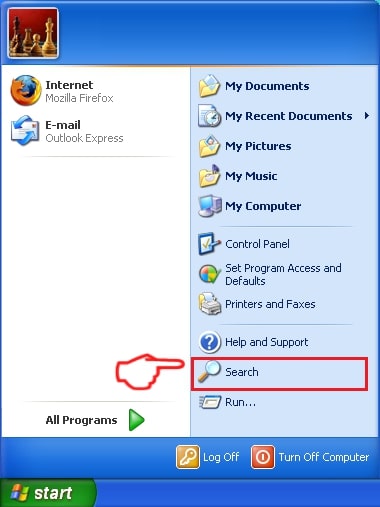
2: After the search window appears, choose More Advanced Options from the search assistant box. Another way is by clicking on All Files and Folders.
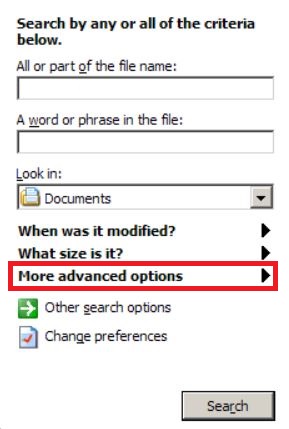
3: After that type the name of the file you are looking for and click on the Search button. This might take some time after which results will appear. If you have found the malicious file, you may copy or open its location by right-clicking on it.
Now you should be able to discover any file on Windows as long as it is on your hard drive and is not concealed via special software.
SysJoker FAQ
What Does SysJoker Trojan Do?
The SysJoker Trojan is a malicious computer program designed to disrupt, damage, or gain unauthorized access to a computer system. It can be used to steal sensitive data, gain control over a system, or launch other malicious activities.
Can Trojans Steal Passwords?
Yes, Trojans, like SysJoker, can steal passwords. These malicious programs are designed to gain access to a user's computer, spy on victims and steal sensitive information such as banking details and passwords.
Can SysJoker Trojan Hide Itself?
Yes, it can. A Trojan can use various techniques to mask itself, including rootkits, encryption, and obfuscation, to hide from security scanners and evade detection.
Can a Trojan be Removed by Factory Reset?
Yes, a Trojan can be removed by factory resetting your device. This is because it will restore the device to its original state, eliminating any malicious software that may have been installed. Bear in mind that there are more sophisticated Trojans that leave backdoors and reinfect even after a factory reset.
Can SysJoker Trojan Infect WiFi?
Yes, it is possible for a Trojan to infect WiFi networks. When a user connects to the infected network, the Trojan can spread to other connected devices and can access sensitive information on the network.
Can Trojans Be Deleted?
Yes, Trojans can be deleted. This is typically done by running a powerful anti-virus or anti-malware program that is designed to detect and remove malicious files. In some cases, manual deletion of the Trojan may also be necessary.
Can Trojans Steal Files?
Yes, Trojans can steal files if they are installed on a computer. This is done by allowing the malware author or user to gain access to the computer and then steal the files stored on it.
Which Anti-Malware Can Remove Trojans?
Anti-malware programs such as SpyHunter are capable of scanning for and removing Trojans from your computer. It is important to keep your anti-malware up to date and regularly scan your system for any malicious software.
Can Trojans Infect USB?
Yes, Trojans can infect USB devices. USB Trojans typically spread through malicious files downloaded from the internet or shared via email, allowing the hacker to gain access to a user's confidential data.
About the SysJoker Research
The content we publish on SensorsTechForum.com, this SysJoker how-to removal guide included, is the outcome of extensive research, hard work and our team’s devotion to help you remove the specific trojan problem.
How did we conduct the research on SysJoker?
Please note that our research is based on an independent investigation. We are in contact with independent security researchers, thanks to which we receive daily updates on the latest malware definitions, including the various types of trojans (backdoor, downloader, infostealer, ransom, etc.)
Furthermore, the research behind the SysJoker threat is backed with VirusTotal.
To better understand the threat posed by trojans, please refer to the following articles which provide knowledgeable details.


